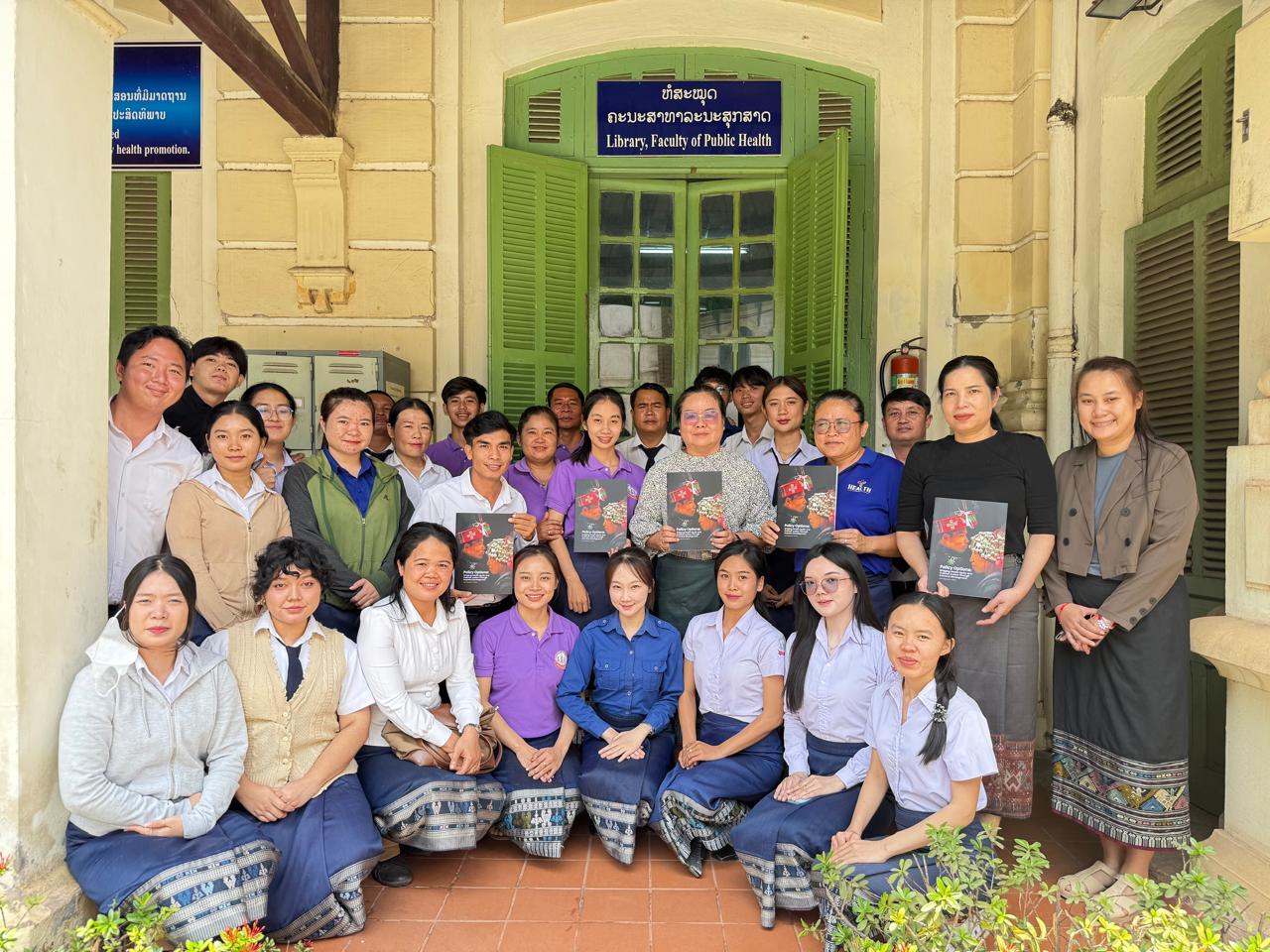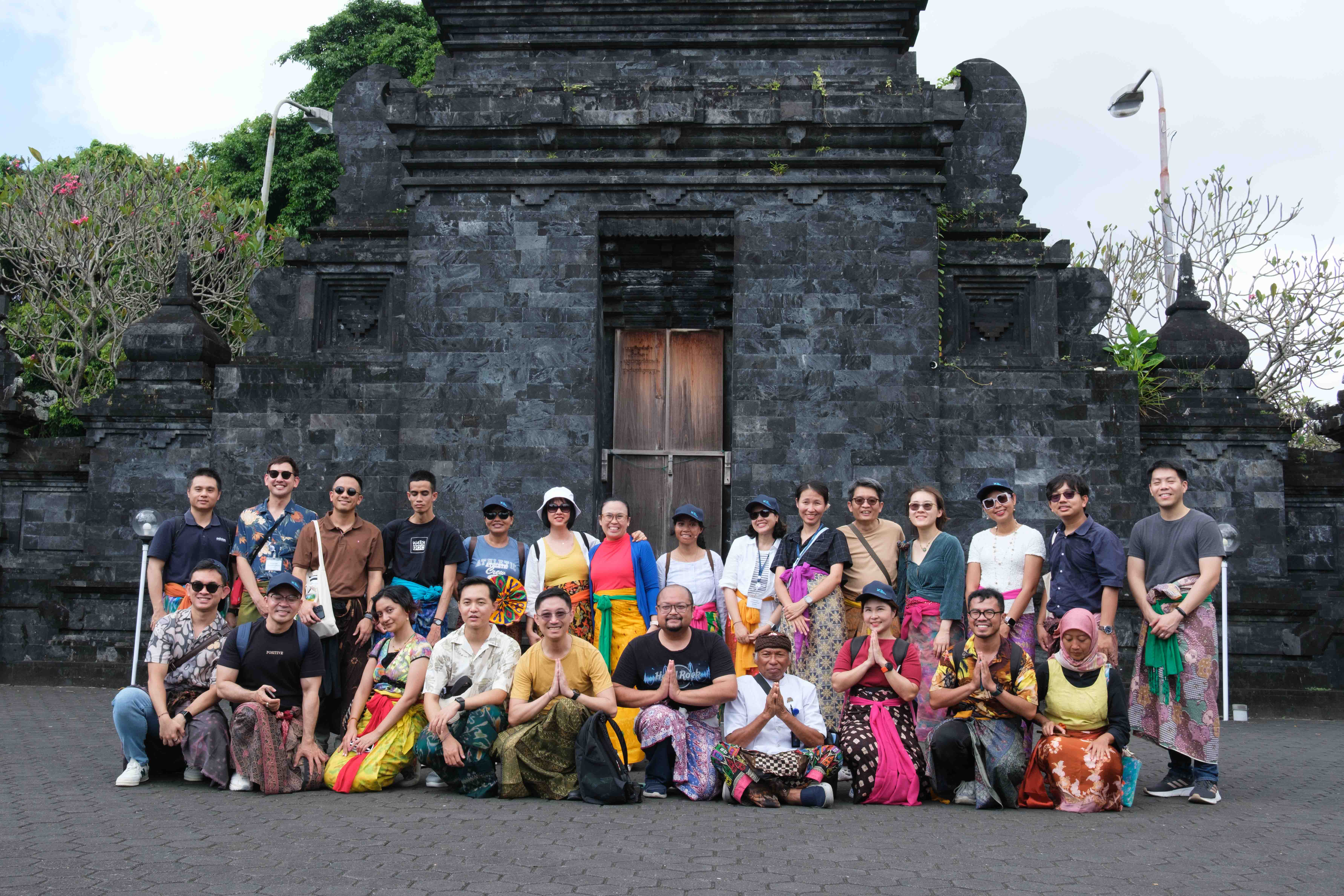Asia Trek: Equity in Border Communities
Asia Trek was an opportunity for 2023 Fellows to explore equity in border contexts, as they spent the week of August 12-19 in Bangkok and Mae Sot, Thailand. Fellows delved into the dynamics of fairness, rule of law, and inclusivity within political, social, and economic landscapes, with a particular focus on Thai-Myanmar border region. Cultural learning opportunities and presentations by experts on ASEAN affairs, community-driven efforts to create social and political change, innovation in public health, and the structural determinants of public health added detail and nuance to the portrait of equity in borderlands.
In Bangkok, Fellows met two of our Senior Fellows– May Sripatanaskul (2018, Thailand), CEO and founder of LUKKID Co., Ltd and Asian Leadership Academy and Kotch Voraakhom (2018, Thailand), a world-renowned landscape architect. May Sripatanaskul conducted a session preparing Fellows for their visit to Mae Sot- a case study on the Mae Tao Clinic to understand how health equity in vulnerable populations are influenced by politics and power dynamics. Kotch Voraakhom, shared about the complexities in creating sustainable living spaces in light of issues like climate change, politics and economics, while giving a tour of one of her remarkable projects, Centenary Park in the heart of Bangkok.
As Fellows travelled to Mae Sot, Fellows were introduced to Mae Sot and its unique context in the backdrop of the Myanmar civil war. Fellows started with cultural learning at Rim Moei Market where Burmese sellers are permitted to sell on the Thai side behind barbed wires. Fellows also got firsthand experience to listen to real life stories of vulnerable people living in the border area, and see first-hand, initiatives such as Joy House, a community led arts and healing center that fosters cross-cultural exchange and friendship focusing on Thai and Burmese children and youth. Other cultural learning visits focused on environmental initiatives such as the one run by Retro Elephant Camp- a sanctuary providing elephants care, and raising the public’s awareness about elephants.
Fellows took a deep dive into the realities on the ground with a panel discussion on “Vulnerability & Resilience Along the Border”. This set the foundation for encounters with community leaders and members, health workers, activists, and service providers in Mae Sot. As Fellows listened to panelists, the sounds of airstrikes on the Myanmar side were audible, a powerful reminder that conflict is not an abstract idea, but very real and persistent, happening within their own region.
Through small group site visits, Fellows were able to gain new insights into cross-border healthcare challenges, the needs of children on the move, safeguarding rights of the vulnerable, and natural resource exploitation. Fellows also had the opportunity to choose 1 of 4 site visits, the first focused on cross-border healthcare challenges where they visited and spoke to practitioners at Mae Tao Clinic and Mae Tao Hospital. The second visit brought Fellows to various Migrant Learning Centers (MLC) to learn more about the challenges and successes of providing education for migrant children. The third visit focused on political refugees and migrants and the various challenges it presents and the ways local and international NGOs work to collectively solve these issues. The last group was led by Senior Fellow Pianporn Deetes (2021, Thailand) to visit a community she works with, to talk to local leaders about their success in preventing large companies from building dams in the local rivers.
In Bangkok Fellows had the opportunity to listen to Professor Kitti Prasirtsuk, a renowned speaker on ASEAN affairs for a more regional perspective to pair with the Fellows local experience in Mae Sot. In contrast, Khun Chalida Tajaroensuk, a Thai human rights activist, spoke about her journey to empower communities and mobilize at the local level. Dr. Suwit Wibulpolprasert, a general practitioner, public health specialist, administrator and policy advocator spoke about his journey in public health, what keeps him motivated to stick to the mission, and his perspectives on compromise, while Khun Sarinee Achavanuntakul, Thailand’s first ‘sustainable business accelerator’ talked more about health equity from a business perspective, challenging Fellows to think in alternative ways to affect change. Throughout the long week, Fellows were given time to plan and reflect on their upcoming second-year projects.
We would like to thank all individuals and organizations who made this such a fruitful experience. We are especially pleased that three of our Senior Fellows – Kotch Voraakhom (2018, Thailand) and May Sripatanaskul (2018, Thailand), Pianporn Deetes (2021, Thailand) – contributed their expertise to segments of the program.





